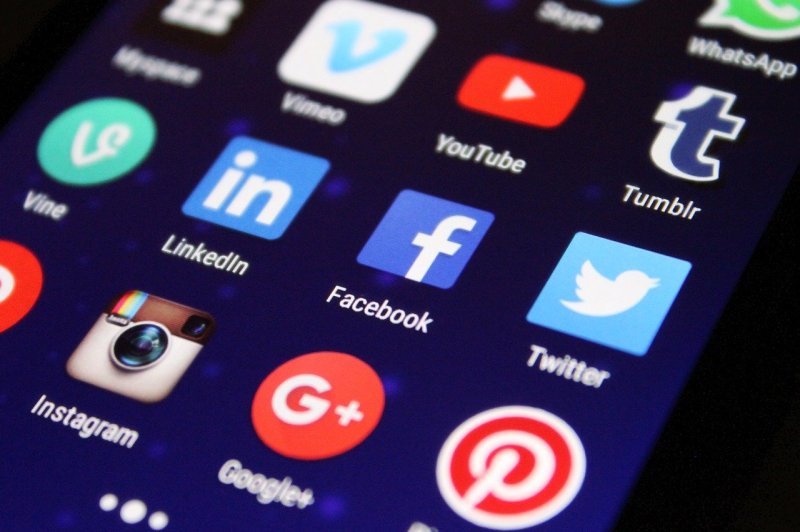
People inadvertently create online '"echo chambers" when they curate news feeds to include preferred sources, according to a new study. Photo by Pixelkult/Pixabay
Dec. 6 (UPI) -- People unknowingly group themselves with like-minded others online, fueling political polarization across the United States simply by curating their news feeds, a study published Monday by the Proceedings of the National Academy of Sciences found.
In a model of online information spread, when people are less reactive to news, their online environment remains politically mixed, the data showed.
However, when users constantly react to and share articles of their preferred news sources, they are more likely to create a politically isolated network, the researchers said.
By effectively sorting themselves into these polarized networks, they essentially develop "epistemic bubbles," according to the researchers.
RELATED Liberals and conservatives get their news from different sources
"Our study shows that, even without social media algorithms, coverage from polarized news outlets is changing users' social connections and pushing them unknowingly into so-called political 'echo chambers,'" study co-author Christopher Tokita said in a press release.
In these echo chambers, "they are surrounded by others who share their same political identity and beliefs," said Tokita, a data scientist at cybersecurity startup Phylum.
Once users are in these bubbles, they actually miss more news articles, including those from their preferred media outlets, according to Tokita.
RELATED Study: Political polarization often exaggerated, not as strong as people think
Users avoid what they deem as "unimportant" news at the expense of not seeing subjectively important news, Tokita said.
"Whether a user chooses to react to or ignore certain news posts can help determine if their social network will become ideologically homogenous or remain more diverse," he said.
The research adds to existing knowledge of "information cascades," or the process of individuals observing and mimicking the actions of others so that a wide online shift occurs.
This phenomenon is not unlike the collective behavior seen in schools of fish or insect swarms, the researchers said.
Political liberals and conservatives in the United States obtain their news from different sources, earlier research indicates.
Although political polarization has been a problem nationally in recent decades, some studies suggest it may be exaggerated.
For this study, the team built a theoretical model and tested its predictions with data from real social networks on Twitter, examining 1,000 followers of each of four news outlets: CBS News, USA Today, Vox and the Washington Examiner.
To track hints of political ideology and shifting social networks, the researchers used the complete follower network of users to record who followed and unfollowed each other over a six-week period during the summer of 2020, they said.
The follower demographic of CBS News and USA Today was more ideologically diverse than those Vox and the Washington Examiner, which, according to the researchers, tend to provide more politically slanted news coverage, the data showed.
The followers of Vox and the Washington Examiner tended to lose political and ideological diversity among their own online connections faster than those who followed CBS News and USA Today, the researchers said.
In addition, depending on the source, the sharing of viral news stories on social media can lead people to conclude that some of the "friends" they follow are misrepresenting the news as reported by their own preferred outlets, according to the researchers.
When people "unfollow" connections they deem untrustworthy, they effectively curate their online social spheres and unintentionally sort themselves into polarized networks, the researchers said.
Conversely, people who consume and share fake news might be isolating themselves inadvertently from everyone else who follows mainstream sources, they said.
Although online interactions are not solely responsible for the divisive shift occurring in U.S. politics, they have substantially influenced human behavior and relationships, according to the researchers.
Blatant knowledge of political ideology or alignment is not necessary for social networks to become politically segregated for users, they said.
"It's not hard to find evidence of polarized discourse on social media, but we ... show that polarization of online social networks emerges naturally as people curate their feeds," co-author Andy Guess said in a press release.
"Counterintuitively, this can occur even without knowing other users' partisan identities, said Guess, assistant professor of politics and public affairs at the Princeton University School of Public and International Affairs.
No comments:
Post a Comment